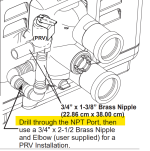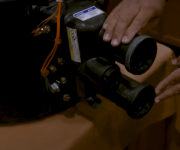Most service companies decide which heater gets installed and most have a preferred manufacturer, so it is unlikely that any competitor will get any significant traction.there will be a competitor that will have less onerous restrictions on their heater that will make its lifecycle costs cheaper and service companies will be happier to service those heaters as it’s less involved.
Other than Pentair, Hayward and Jandy, the only heater maker that has any market share of any significance is Raypak and they require an anode.
The manufacturers all get together to decide these things at a yearly top-secret meeting in Switzerland.
They just decided that the zinc anode will be required to have its own anode made of magnesium to protect the zinc anode from corrosion.























